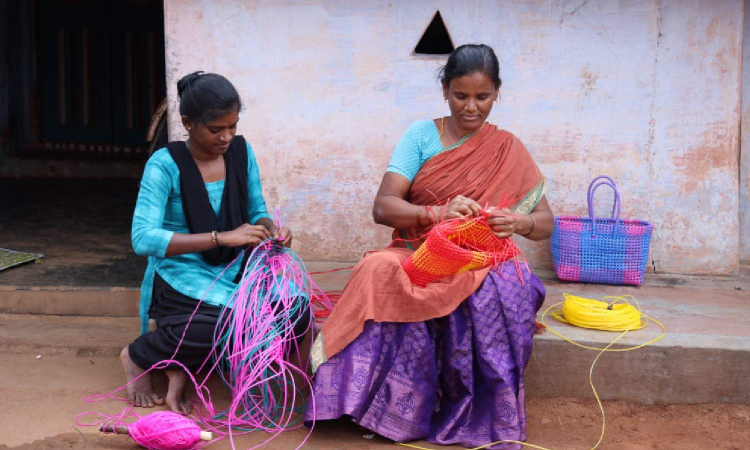Building livelihoods for adults with disabilities in rural TN
Over time, they began to notice a gap that rarely gets addressed. “Until the age of 18, there are schools, support systems, and government programmes for disabled students. But after that, there is almost nothing.

Koodai making group
CHENNAI: Special educators Anu Alex and Aarabhi Badri have spent years working in the disability sector across Tamil Nadu. Much of their work has taken them to rural parts of the state, where they focus on community-based rehabilitation among disabled individuals.
Over time, they began to notice a gap that rarely gets addressed. “Until the age of 18, there are schools, support systems, and government programmes for disabled students. But after that, there is almost nothing.
For individuals with mild disabilities, it is possible to find a place in mainstream society. But those with complex needs are often left out entirely. They are excluded from employment and community life.
And, as they grow older, many are seen as burdens. We wanted to change that. Not through charity or symbolic inclusion, but through something real. Something that could grow and last,” Anu explains.
That idea led to the creation of 'And Alt Foundation', which the duo co-founded with artist Ghana. The organisation is committed to building sustainable livelihoods and providing holistic, long-term support to adults with disabilities, particularly those who have been left out of formal systems.
Their work is focused on the Thogamalai block of Karur district. Although their formal engagement there began in 2021 through a local partner organisation, Anu and Aarabhi had already been connected to the area since 2016 through indirect efforts.
Artisians joyfully showcasing their fabrics
They started small, with a group of 12 adults with disabilities, introducing them to natural dyeing and botanical eco-printing. “The group included individuals with a range of support needs, and the goal was to create meaningful, accessible work that respected each person’s abilities.”
The initiative has since grown steadily. There are now three village centres in the area that focus on basket weaving, tailoring, needlework, and embroidery. “Each centre offers ongoing skill training, where learning and production happen together. There are no strict targets, and no pressure. Participants move at their own pace in an environment designed to support their dignity and growth,” adds Anu.
So far, the foundation has worked with 65 individuals with disabilities, along with their families. Their reach now extends across ten panchayats in the region. “We do not believe in temporary solutions. Everything we do is built with the community. The aim is not just to teach a skill, but to create something that lasts. Something that the people themselves can carry forward,” concludes Anu.



